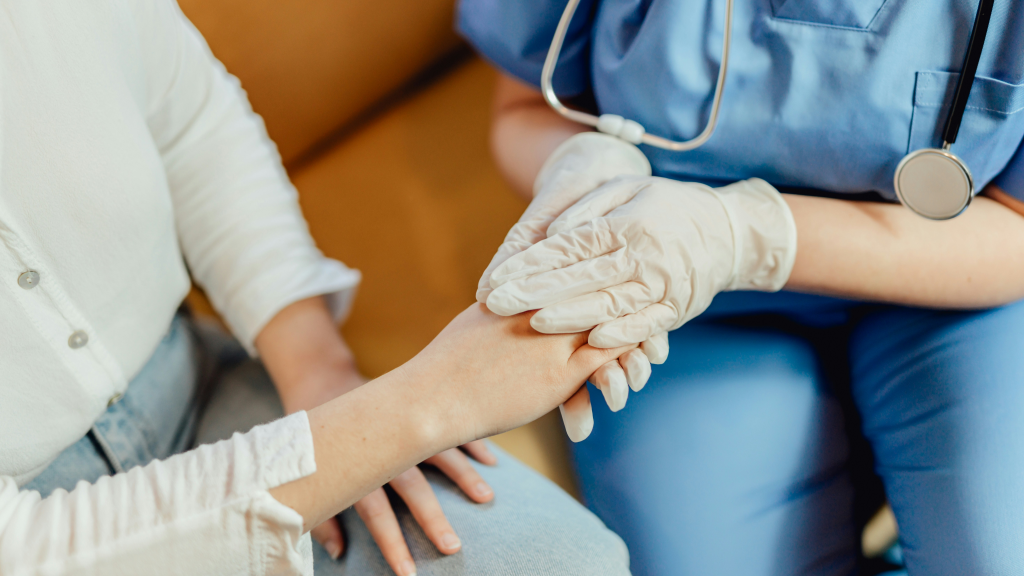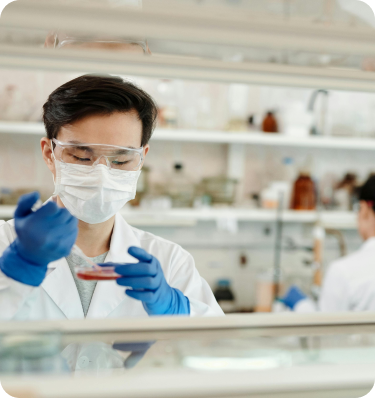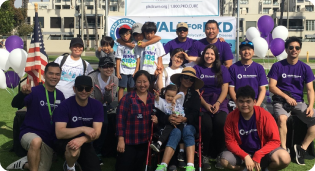What is PKD?
Polycystic kidney disease (PKD) is a chronic, genetic disease causing uncontrolled growth of fluid-filled cysts in the kidneys. As the cysts accumulate more fluid, they get bigger and bigger, destroying healthy tissue, which leads to high blood pressure, other complications, and often kidney failure.
A typical kidney is the size of a human fist and weighs about a third of a pound. Polycystic kidneys can be much larger, some growing as large as a football.
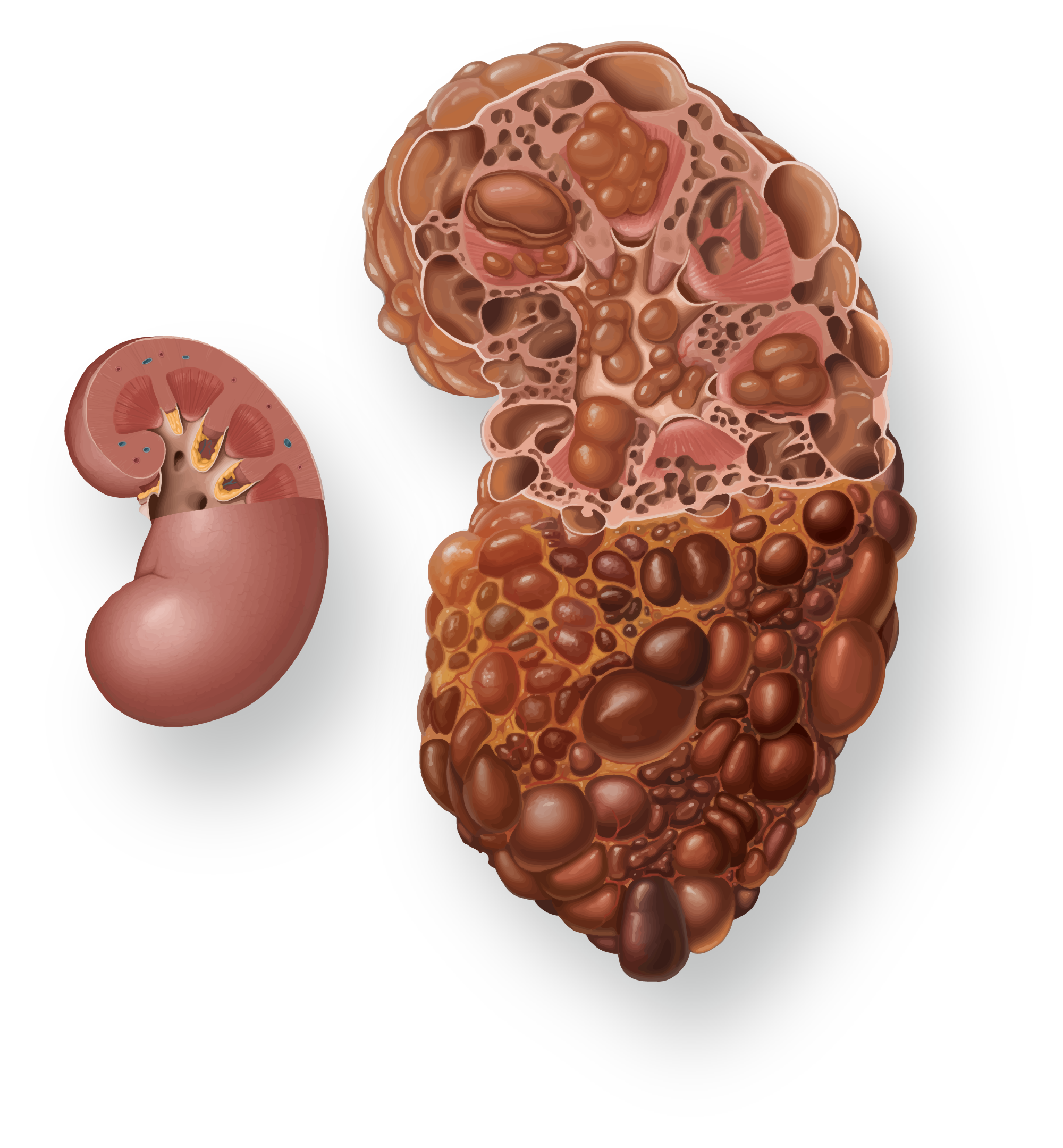
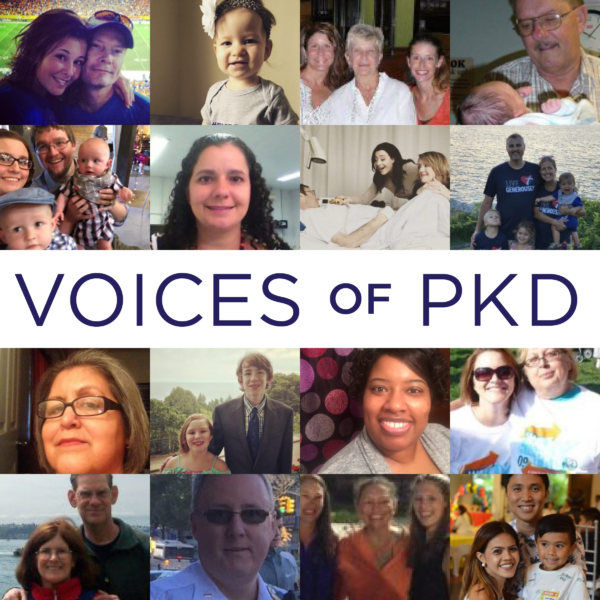 Share your story
Share your story
Submit your story through Voices of PKD or on social media using the hashtags #VoicesofPKD and #FoundationFeature.
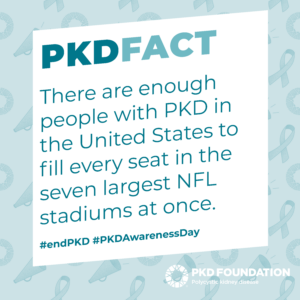 Share the facts
Share the facts
Visit our social media channels and share PKD Foundation content. You can also download and share information about ADPKD and ARPKD. Be sure to use hashtags to use: #endPKD and #PKDAwarenessDay
 Wear & share teal
Wear & share teal
Share a photo of yourself in teal, the designated awareness color for PKD. Hashtags to use: #endPKD and #PKDAwarenessDay
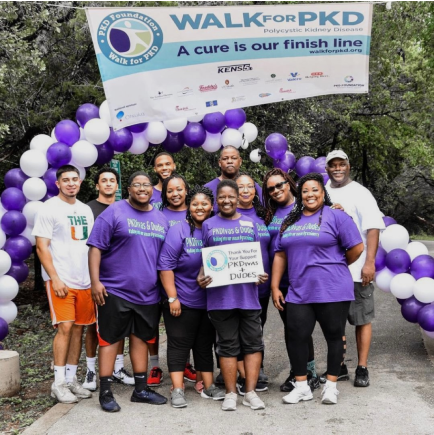 Walk to #endPKD
Walk to #endPKD
Be a part of our largest fundraising and public awareness event. 100% of all donations go to PKD research!
 Join the ADPKD Registry
Join the ADPKD Registry
Help drive the next medical breakthrough for ADPKD patients. You have the power to #endPKD.
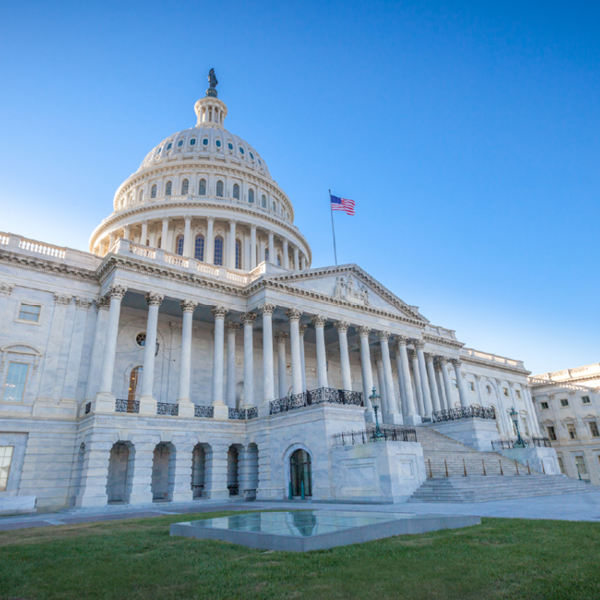 Be an advocate
Be an advocate
Learn how to advocate for legislative changes that benefit our community and receive important alerts.
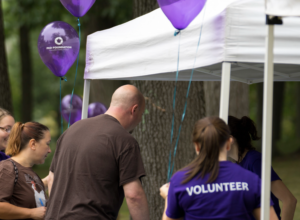 Volunteer
Volunteer
Volunteers are the heart of the PKD community. Our volunteers ensure that no one faces PKD alone. When you join our volunteer team, your time and efforts will impact the funds raised for PKD research.
About the PKD Foundation
We’re the only organization in the U.S. solely dedicated to finding treatments and a cure for polycystic kidney disease (PKD) and to improving the lives of those it affects. Since 1982, we’ve proudly funded more than 1,300 research projects and leveraged $1.5B in research funds, while serving our local communities across the country. We’re inspired by our mission. And driven by our vision.
Our mission
WE GIVE HOPE. We fund research, advocate for patients, and build a community for all impacted by polycystic kidney disease.
Our vision
#endPKD
